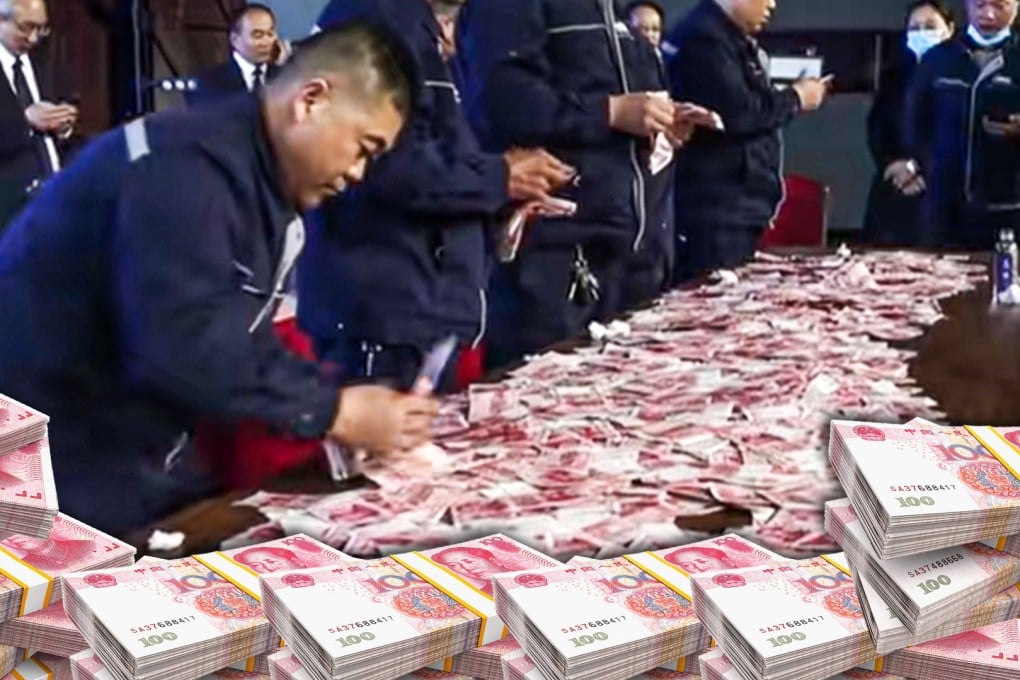China’s viral year-end bonus buzz takes on a more pessimistic tone
Workers use bonus levels to gauge companies’ financial health and competitiveness in the coming year

China’s economic difficulties and mounting external pressures have redefined employees’ bonus expectations this year, with a more pessimistic mood dominating online discussions.
The annual bonuses paid by Chinese employers begin trending online before every Lunar New Year holiday, with younger members of China’s workforce, who use them to gauge the financial health and competitiveness of companies and industries in the coming year, driving the discussion.
Ten years ago, during the tech and real estate boom, information technology companies and property developers were renowned for their generous bonuses and lavish gifts, such as luxury overseas trips or expensive cars. The company lai see – a red envelope containing cash – could amount to as much as 50 months’ salary, according to media reports at the time.
But many employees, across a range of industries, are pessimistic about their 2024 year-end bonus packages, and the topic “year-end bonus is a real litmus test” racked up more than 120 million views on the Weibo microblog service in the last few weeks.
A survey by Phoenix Weekly magazine this month found that about 20 per cent of its more than 600 respondents said they would receive a year-end bonus this year. In contrast, a 2023 survey conducted by job search facilitator 51job.com found that over 80 per cent of respondents said they received a year-end bonus that year.
